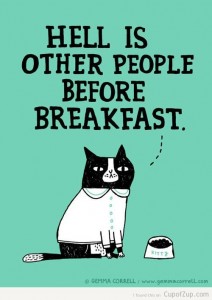 Jean-Paul Sartre, the famous French existentist, never said “Hell is other people at breakfast,” but if you Google that phrase you will find dozens if not hundreds of websites and blogs that say he did so say that. That’s the Internet for you, where one man’s faux quote can go viral in a matter of days without anyone ever checking to see if the quote was what the man really said.
Jean-Paul Sartre, the famous French existentist, never said “Hell is other people at breakfast,” but if you Google that phrase you will find dozens if not hundreds of websites and blogs that say he did so say that. That’s the Internet for you, where one man’s faux quote can go viral in a matter of days without anyone ever checking to see if the quote was what the man really said.
While Sartre’s faux quote about hell being other people at breakfast was never written or uttered by the quote-worthy philosopher, many people today not only agree that the “breakfast” quote is a deep existential truth, but that Sartre actually said that. Why? Because the Internet said he did.
What Sartre really wrote in a play called “No Exit” was “Hell is other people.” But when American essayist Jonathan Rauch wrote in an Atlantic magazine essay several years ago that “Hell is other people at breakfast,” and jokingly quoting Sartre as saying such a thing, the faux quote went viral and is now believed to be by many people an actual quote from Sartre. Google it and you will see how wrong they are, and how Rauch was from the very beginning just joking—joking!
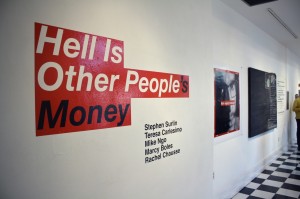 What Sartre did not say about people, breakfast and hell is a good example of how out of control fires can spread on the Internet without anyone bothering to put the fire out. Even today, Atlantic magazine has not corrected the faux quote in Rauch’s essay, nor have the editors there added a note online to say that the essayist with merely joking when he wrote that thing about breakfast. So the meme continues to this day and is almost more popular and quoted than what Sartre really did say.
What Sartre did not say about people, breakfast and hell is a good example of how out of control fires can spread on the Internet without anyone bothering to put the fire out. Even today, Atlantic magazine has not corrected the faux quote in Rauch’s essay, nor have the editors there added a note online to say that the essayist with merely joking when he wrote that thing about breakfast. So the meme continues to this day and is almost more popular and quoted than what Sartre really did say.
I first spotted “hell is other people at breakfast” misattribution after reading it in a 12-page New York Times Weekly supplement tucked into a Chinese-language newspaper in Taiwan, where I live.
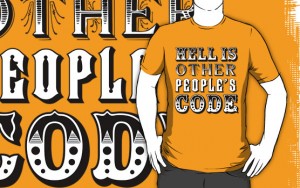 The fake quote has taken on a life on its own, thanks to the speed at which people read online and the power of the Internet to spread false facts and quotes. The Sartre faux quote is a good excuse to pause and take stock of how we use quotes of any kind in this online age.
The fake quote has taken on a life on its own, thanks to the speed at which people read online and the power of the Internet to spread false facts and quotes. The Sartre faux quote is a good excuse to pause and take stock of how we use quotes of any kind in this online age.
Mary Schmich, the Chicago newspaper columnist, understands this well.
“Got a speech to give? A paper to write? A love missive that could use a rhetorical boost? How simple and tempting it is to fire up Google then snag whatever quotable quote pops up on whatever site,” she wrote in a column a few years ago.
“Quote culprits come in many forms: school valedictorians and principals, businesspeople, students, journalists, ad writers,” she added. “Let he who is without sin cast the first stone, or whatever, as the Bible, or maybe Stephen Colbert, once said.”
“When something wrong gets out there today, it’s like spilling red wine onto a white carpet,” Charles Lipson, a University of Chicago professor who trains students in academic honesty, told Schmich when she asked him, for, uh, a quote. “You never get it out. And somebody keeps spilling more wine on top of it.”
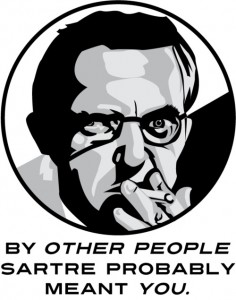 Fred Shapiro edits “The Yale Book of Quotations” and Schmich picked his brain to find out if he had any rules for quotations.
Fred Shapiro edits “The Yale Book of Quotations” and Schmich picked his brain to find out if he had any rules for quotations.
“Any time you see a quote attributed to Mark Twain, figure that one is false. Similarly with Yogi Berra and Benjamin Franklin,” Shapiro told her.
The key to discerning the accuracy of a quote, Shapiro told Schmich, is to always look for when and where it was said, and if you don’t know, to be very wary.
If a quote is good, even a faux quote, why should a person care whether it’s correct or who really said it?
While in general the true quote is better than the fake quote, sometimes the fake quotes take on a life of their own and become better with age. In the future, American studenrts might not study Sartre’s plays or see them performed on Broadway or Off-Broadway, but I am sure many of them will really think and agree that “hell is other people at breakfast.”
Because, you know, for some people, it is.
Dan Bloom is a freelance writer in Taiwan.





















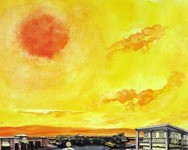
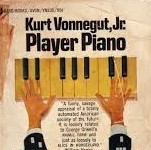











Several years ago, on a reading Yahoogroups I was on, one of the frequent posters had a quote by Nathaniel Hawthorne about loving chocolate in her signature line. The quote bothered me because the wording sounded too modern, and chocolate during Hawthorne’s time was only served as a hot drink in place of tea, and only women admitted to drinking it.
I searched for the word “chocolate” in a Hawthorne concordance and discovered I was right. Hawthorne hadn’t said it.
I asked her where she got the quote, and she remembered. I chased it down then did a long search on where that site had gotten it.
I finally found the quote by someone modern. On the same page was the word “Hawthorne.” Eureka!
I asked the original site to change the author status, but I never followed up if they did although I’ve never seen the wrongly attributed quote used since.
Now I feel bad. I frequently make pastiches of famous quotes such as (but definitely not limited to): “As Mark Twain said, ‘Man is the only animal that accessorizes. Or needs to.'” and “As Benjamin Franklin said, ‘Reese’s Peanut Butter Cups are proof that God loves us, and wants us to be happy'” (replacing Reese’s with gravy or anything else as the situation demands).
One of my favorite movie quotations is a false quotation, from Real Genius. Val Kilmer’s character said “In the immortal words of Socrates, ‘I drank what?'”
Patrick
Patrick, if I want to change a quote, I always say, “To misquote [insert name here].”
This is not new. A lot of famous quotes never actually happened long before the Internet came about.
For example, Marie Antoinette never said “Let them eat cake.”
Voltaire never said, “I disagree with what you say, but will defend to the death your right to say it.”
But as Charles Haddon Spurgeon said (and Mark Twain didn’t), “A lie will go round the world while truth is pulling its boots on.” And that’s more true than ever in the Internet age.
Reminds me of the problem Weird Al has with peer-to-peer downloading. Not that people are “stealing his music” but that any song parody, no matter how lewd, invariably gets his name tacked onto it because he’s famous for parodies, the song is a parody, so QED.